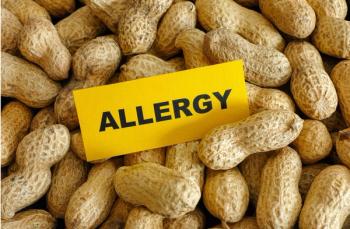
Phytoestrogens May Ease Wheezing Asthma, Allergy
A simple way to prevent asthma or treat wheezing may be to eat flaxseed or take some kind of probiotic.
Increased consumption of phytoestrogens may help prevent or treat asthma and allergic disease, according to a large, nationally representative sample of patients.
The incidences of wheezing, asthma, and allergy were found to be lower in participants in the national observational study who had higher urinary levels of certain phytoestrogens-estrogen-like compounds that occur naturally in plants of the legume family and in grains, vegetables, and fruits.
Previous in vitro studies support an immunomodulatory effect for some phytoestrogens, but human evidence is limited.
“We were interested in examining the relationship between these seed-derived and legume-derived antioxidants and markers of asthma and allergy. There has been evidence in studies looking at what’s going on at the cellular level that some phytoestrogens may have an immunomodulatory effect, or rather they may modify or regulate the immune system in a certain way,” said senior author Jessica Rabe Savage, MD. “So we decided to look at a human population and see if there was a relationship between phytoestrogens and markers of asthma and allergy.”
Dr Savage and colleagues at Brigham and Women’s Hospital in Boston used data from the National Health and Nutrition Examination Survey from years 2003 to 2010. They obtained urinary phytoestrogen levels, history of wheezing and asthma, total and specific immunoglobulin E (IgE) levels, and blood markers of allergic diseases for more than 10,000 persons. Atopy was defined as having at least 1 positive specific IgE level to an aeroallergen.
Statistical analyses were used to determine associations between phytoestrogen levels and outcomes, adjusting for age, sex, ethnicity, poverty index ratio, and creatinine level.
Urinary levels of several phytoestrogens were inversely associated with wheezing, specifically O-desmethylangolensin (O-DMA), enterodiol, and enterolactone, which also was inversely associated with asthma.
Wheezing was 41% less likely to occur in those with enterolactone levels in the top versus bottom third and 34% less likely for the top versus bottom tertiles by O-DMA. Aeroallergen sensitization was 27% less likely with daidzein levels in the top versus bottom third. Asthma risk fell 9% overall and 13% in children per natural log higher enterolactone in adjusted analyses.
The odds of atopy significantly decreased with increasing daidzein levels. Daidzein also was associated with lower levels of total IgE.
“Now that we’ve uncovered this inverse relationship between phytoestrogen levels and markers of asthma and allergies, more research should be done to investigate whether increased consumption of sources of phytoestrogens may help prevent or treat these conditions,” said Dr Savage.
She suggested that one simple way to prevent asthma or to treat wheezing and other respiratory diseases may be to eat flaxseed or take some kind of probiotic to help turn the precursors of the lignan into enterolactone. The microbiome is important in converting these foods and converting these chemicals into phytoestrogens, she noted.
The researchers presented the
Newsletter
Enhance your clinical practice with the Patient Care newsletter, offering the latest evidence-based guidelines, diagnostic insights, and treatment strategies for primary care physicians.


































































































































